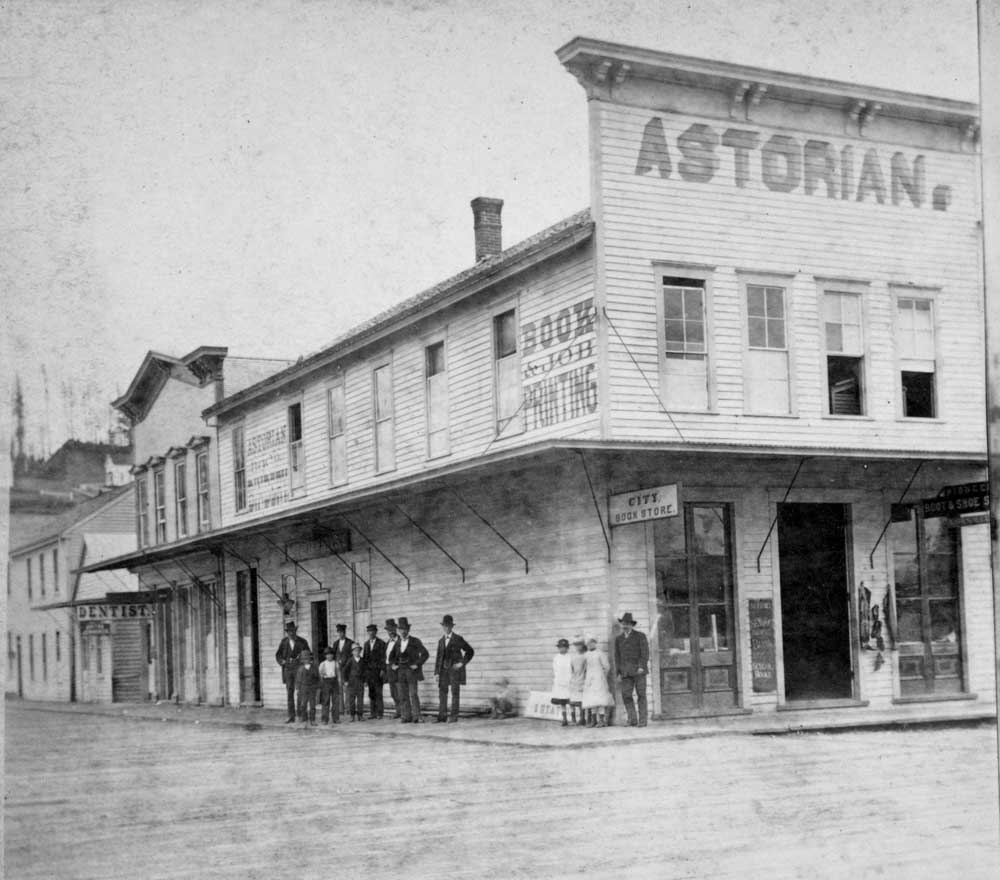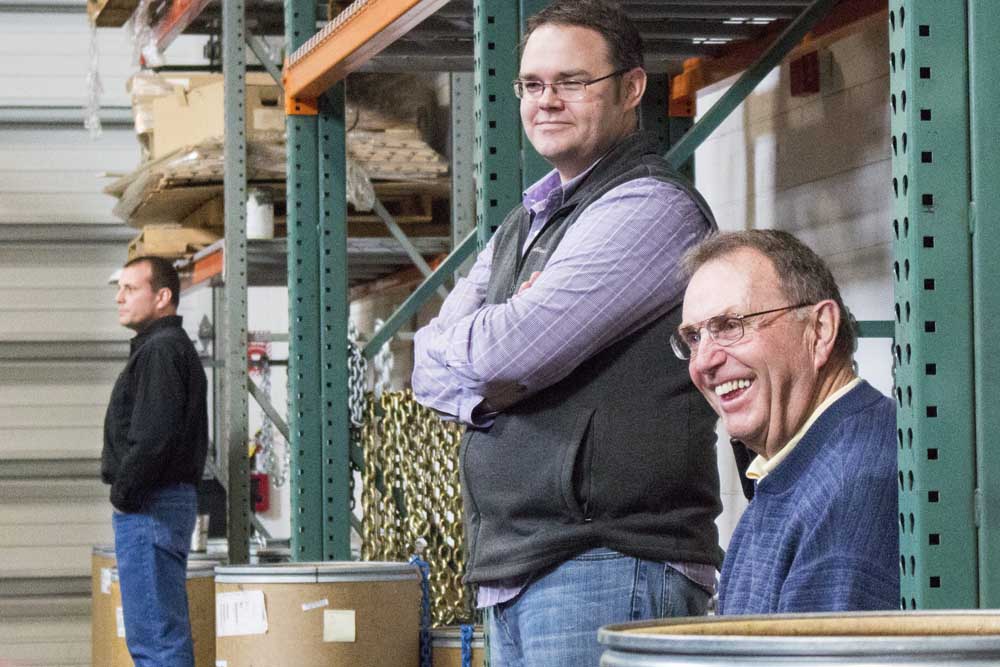Our fiscal year was encouraging
Published 2:03 pm Friday, August 22, 2014

- This was The Astorian's building in the 1890s, at Commercial and 10th streets.
If you are in a family-owned company, chances are you are more analytical about its unique challenges than your parents or grandparents were. Business schools discovered family businesses in the 1980s. Now there are frequent seminars for family business owners and a long bookshelf on topics such as succession planning and the value of having nonfamily members on the board of directors. Begun in 1985, Oregon State University’s Austin Family Business Program is one such academic center.
Trending
Our family’s business, EO Media Group, held its annual meeting in Portland today. One of the things that marks our company is a fairly slender family tree. Unlike the Blethen family that owns the Seattle Times or the Bakers who own the Register-Guard of Eugene, there aren’t many of us. My cousin Kathryn Brown and I are the only working members of the owning family.
Thus it was significant today that my daughter, Susan Forrester Rana, became the second member of our fourth generation to join the company board of directors. Our founding member, Edwin Burton Aldrich was Susan’s great-grandfather.
At a time when some of the largest newspaper groups are shrinking, our fiscal year that ended with June was encouraging. Newspaper profitability grew for the first time in four years The Capital Press, our regional agricultural weekly based in Salem, showed the third highest profit in its history. In Grant County, which has one of Oregon’s highest levels of unemployment, our Blue Mountain Eagle made a significant profit gain over the prior fiscal year.
Trending
Here at The Daily Astorian, our talented classified advertising sales representative, Kimberly Flaigg, reports record gains over five of the past seven months. In Pendleton The East Oregonian’s annual Round-Up magazine will grow to a record 96 pages in its September publication.
Our gains stem from two factors: an improved economy and talented, aggressive sales efforts. Our Pendleton newspaper’s new advertising manager Jennine Perkinson is having a tangible impact. Ditto for Flaigg in Astoria.
Our enterprise lives on talent. It is true that computers, software and machinery matter. But it is people with imagination and drive who make the difference.
While our board meeting was all about the future, our family owners are also looking backward. We have commissioned the Portland historian William Willingham to update the history of our company that Gordon MacNab wrote in 1975. While Willingham was in Astoria this week he pored over the minutes books of the Astorian-Budget Publishing Co.
He was especially engrossed in the postwar era of 1955-60 when the Astorian-Budget was in dire straits. My parents and my aunt, Amy Bedford, hired a publisher out of Alaska named Morgan Coe. It was Morgan who moved the paper’s operations across Exchange Street in 1970. He eliminated the Saturday edition and changed the paper’s name to The Daily Astorian.
Bill Willingham was two years ahead of me at Pendleton High School. We were inspired by the same history teacher at there. Bill took his inspiration a lot further than I did mine. Bill wrote the introduction of our book Pendleton at 100: Oregon’s Legendary Rodeo and he wrote a chapter on Capt. George S. Flavel in our book Eminent Astorians.
Our industry likes to tear its guts out in public. It seems that every week an industry analyst issues a new prediction that newspapers’ future either looks dark or is encouraging. Most of that comment is about publicly-held companies. Being privately held allows owners to take the long view.
All we can do is work hard and continue to innovate. As former competitors such as The Oregonian fade from view, our newspapers gain prominence. The Portland daily’s retreat from Salem gives our new statehouse news service a huge market opening. Our collaboration with Pamplin Communications is historic for this company.
The history of our company is a succession of family, hired managers and employees who adapted to changing technology and adverse economic cycles. Kathryn Brown and I face a much different sort of challenge. But as long as people love their small towns, newspapers like ours have a future.
— S.A.F.
As long as people love their small towns, newspapers like ours have a future.









